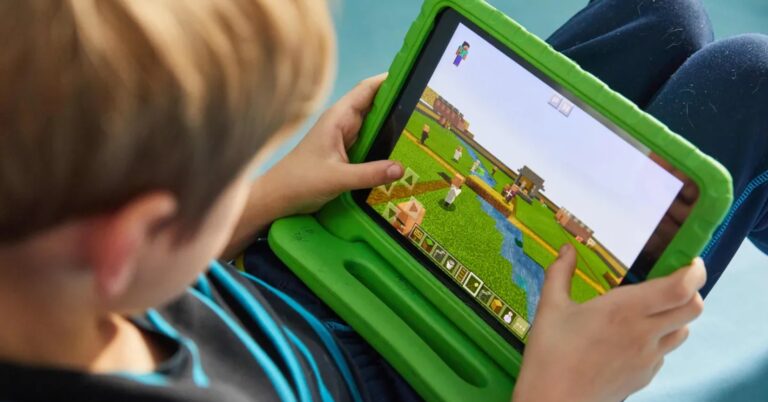My years working in child development have taught me a powerful truth: the Montessori method isn’t just an educational framework—it’s a transformative experience that opens the doors to a child’s intellectual world. Developed by Maria Montessori over a century ago, this approach expertly blends independence with structured freedom and deep respect for a child’s holistic growth.
In the Montessori classroom, children are encouraged to explore, discover, and learn at their own pace. This freedom fosters a love for learning, critical thinking skills, and independence.
However, the magic of Montessori isn’t limited to classrooms. As parents, you can also incorporate its principles at home to boost your child’s intellectual development.
In this article, we delve into 9 aspects of the Montessori method that can significantly contribute to your child’s cognitive growth. Each point provides insights into how this educational philosophy promotes intellectual development in children.
By understanding these factors, you will be better equipped to foster an enriching learning environment for your child, whether they are in a Montessori school or not.
1. Nurturing curiosity and creativity
The Montessori method firmly believes in nurturing a child’s inherent curiosity and creativity. This approach allows children to explore various activities and areas of interest, sparking their intellectual curiosity.
In a Montessori setting, materials are thoughtfully displayed in an accessible manner, inviting children to choose what they want to work on. This choice and freedom of exploration can ignite a child’s natural curiosity, leading to creative thinking and problem-solving skills.
Moreover, the Montessori method encourages children to take the lead in their learning process. The teacher is more of an observer, stepping in only when necessary. This promotes self-directed learning, where children are motivated to seek knowledge on their own.
2. Fostering independence
Fostering independence is a cornerstone of the Montessori method. This pedagogical approach emphasizes the importance of allowing children to do things for themselves, guiding them to become confident, self-reliant individuals.
In a Montessori classroom, children are encouraged to take part in practical life activities. These can range from simple tasks like pouring water or brushing their hair to more complex ones like preparing their own snacks. By participating in these activities, children learn to manage tasks on their own, enhancing their sense of self-efficacy.
This focus on independence doesn’t mean that children are left entirely on their own. Teachers provide support when needed, but the goal is to help children build skills and confidence to carry out tasks independently. This fosters a sense of achievement and instills a positive attitude towards learning.
3. Creating and maintaining a prepared environment
A key component of the Montessori method is the concept of a prepared environment. This refers to a learning environment that is thoughtfully designed to encourage children to engage in learning activities that suit their developmental stage.
In a prepared environment, learning materials are carefully selected and arranged in a way that is easily accessible to children. This facilitates independent learning as children can choose what they want to explore and learn at their own pace.
The environment is designed to promote order and structure, which helps children understand where things belong and encourages them to take responsibility for maintaining their surroundings. This improves their organizational skills while also fosters respect for their environment.
4. Encouraging multi-age grouping
One unique aspect of the Montessori approach is the practice of multi-age grouping. This involves placing children of different ages within the same learning environment. The purpose of this arrangement is to promote peer learning and encourage cooperation.
In a multi-age group, younger children have the opportunity to learn from older peers, while the older children reinforce their understanding by teaching concepts they have already mastered. This fosters a sense of community and cooperation, and it enhances the children’s social and communication skills.
Furthermore, in a multi-age setting, children are exposed to a variety of perspectives and abilities. This helps to foster understanding, empathy, and respect for others. It also encourages children to be patient and supportive, which are valuable interpersonal skills.
5. Emphasizing learning through senses
It’s believed that children learn best when they’re actively engaged with their environment, using all their senses to explore and understand the world around them.
Montessori classrooms are filled with tactile materials that children can touch, feel, and manipulate. This hands-on engagement allows children to learn concepts in a concrete way before they’re introduced to abstract ideas.
For instance, children are introduced to mathematical concepts using manipulatives such as number rods and bead chains. This tactile experience helps them grasp abstract ideas like counting, addition, subtraction, and multiplication more effectively.
In addition, sensory exploration aids in the development of fine motor skills and hand-eye coordination. This is another way the Montessori method contributes to unlocking a child’s intellectual potential.
6. Leveraging uninterrupted work periods
The Montessori method places a significant emphasis on uninterrupted work periods, also known as “work cycles”. These are blocks of time, typically ranging from one to three hours, where children are free to choose their activities and work on them without disturbance.
During these work cycles, children can deeply engage in an activity that piques their interest. This uninterrupted focus allows children to enter a state of flow where they can fully immerse themselves in the task at hand.
This focused engagement enhances cognitive abilities, stimulates creativity, and strengthens concentration. Moreover, it fosters self-discipline and improves time management skills as children learn to plan and execute their chosen activities within the given time frame.
7. Fostering respect for others
The Montessori method goes beyond academics, aiming to nurture well-rounded individuals who respect themselves, others, and their environment. This holistic approach to education plays a crucial role in unlocking a child’s intellectual potential.
In a Montessori classroom, children are taught to respect their peers’ work and personal space. They learn to wait their turn, ask for permission before using someone else’s materials, and help others when needed.
Additionally, children are encouraged to resolve conflicts constructively and independently. Teachers guide them through the process but allow them to find solutions on their own. This fosters social skills and enhances problem-solving abilities.
Respect and care for the environment are also instilled. Children learn to tidy up after themselves and take care of classroom plants and animals. This nurtures a sense of responsibility and respect for the world around them.
8. Promoting self-assessment and reflection
Unlike traditional education systems that rely heavily on external evaluation, the Montessori approach encourages children to assess their own work.
This self-assessment process involves children checking their work against a standard or model, identifying errors, and making corrections independently. Over time, this practice helps children develop critical thinking skills and fosters a sense of responsibility for their own learning.
Reflection is a key part of the learning process in a Montessori environment. After completing an activity, children are encouraged to reflect on their experience – what they did, how they did it, what they learnt, and what they could do better next time.
By promoting self-assessment and reflection, the Montessori method helps children become active participants in their learning journey, fostering intellectual growth and lifelong learning skills.
9. Nurturing a love for learning
The ultimate goal of the Montessori method is to nurture a love for learning. This approach believes in fostering intrinsic motivation rather than relying on external rewards or punishments.
Montessori classrooms offer an environment where learning is fun and exploration is encouraged. Children are free to choose activities that interest them, allowing them to experience the joy of discovering new things on their own terms.
The Montessori approach respects individual learning styles and paces. Children are not rushed through concepts; instead, they’re given the time they need to fully understand and absorb new information. This respectful approach helps children see learning as an enjoyable, rewarding process, not a stressful one.
By nurturing a love for learning, the Montessori method helps children develop a positive attitude towards education. This intrinsic motivation to learn is a powerful tool in unlocking a child’s intellectual potential.
Embracing the Montessori journey
Embracing the Montessori method is more than just an educational choice; it’s a lifestyle decision that can profoundly shape your child’s intellectual growth and character development.
The journey may require a shift in perspective, as it challenges conventional education norms. It necessitates patience, understanding, and a commitment to fostering an environment that nurtures your child’s innate curiosity and love for learning.
Each child is unique, and the Montessori method honors this individuality by allowing children to learn at their own pace and in their own way. It’s not about hitting certain milestones at specific times; it’s about cultivating a lifelong learner.
By implementing the Montessori principles at home, you can further reinforce what your child learns in school. This consistent application across environments can significantly enhance the benefits of the Montessori approach.
Finally, remember that parenting is a journey, not a destination. There will be challenges along the way, but with perseverance and dedication, you can help unlock your child’s intellectual potential using the Montessori method.








